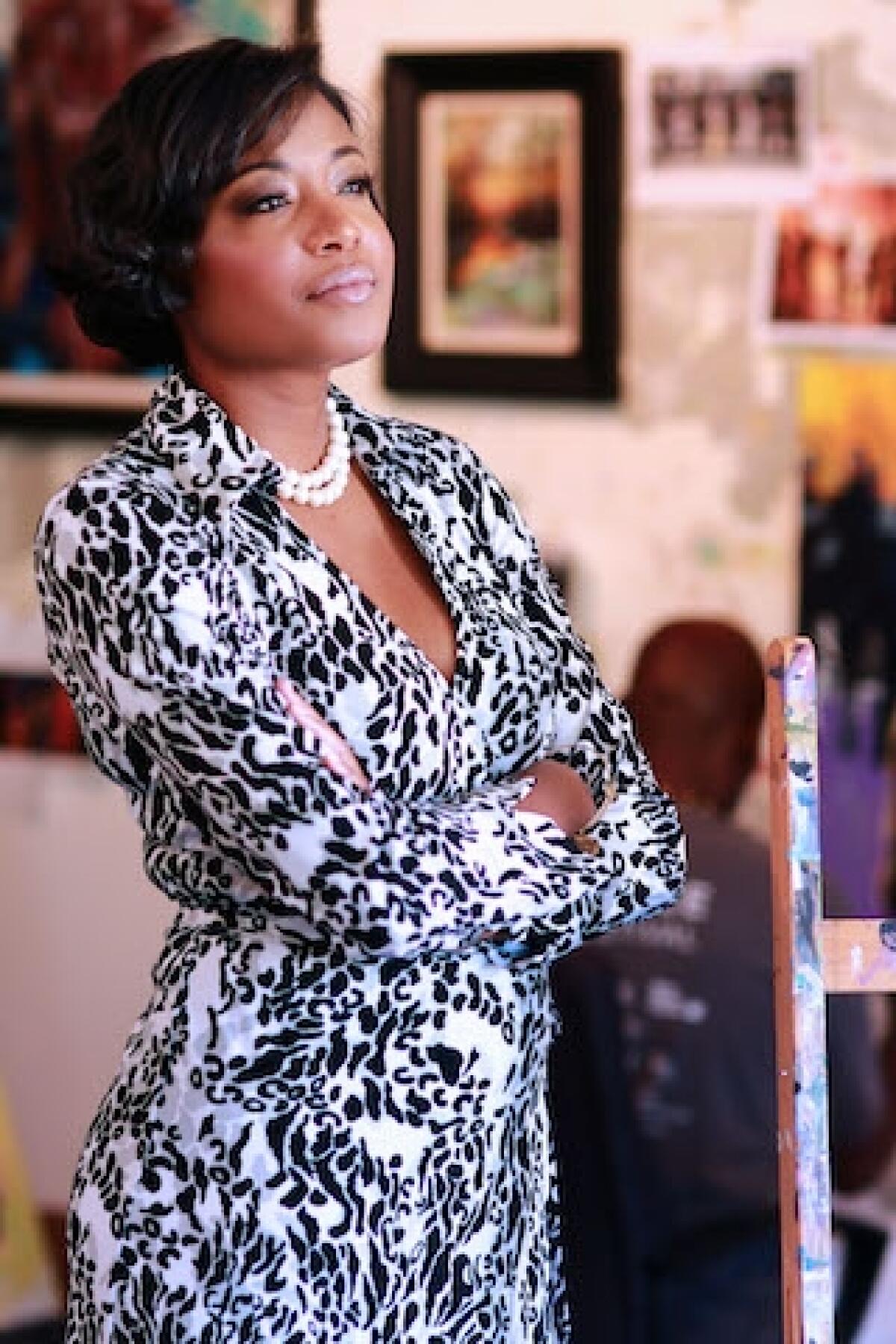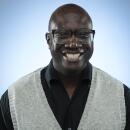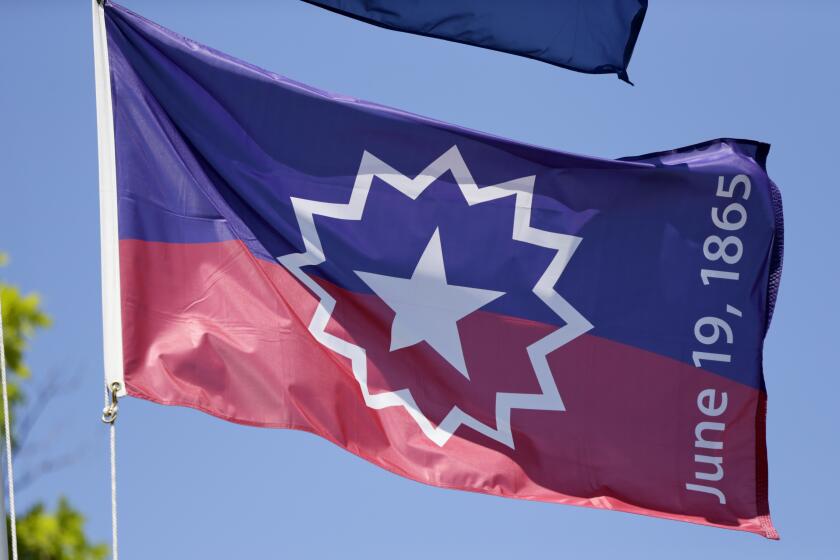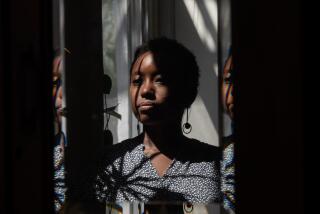Why the Lakers created a job to guide them on racial equity

- Share via
The genesis behind the Lakers connecting with Karida Brown to hire her as the team’s inaugural director of racial equity and action came about because Tim Harris sought for ways to have his organization become more enlightened during the nationwide discussions about racism.
Harris, the Lakers’ chief operating officer and president of business operations, told Brown he realized that his organization had questions that included, “How do we even understand this moment that we’re in?”
Brown, an assistant professor of African American Studies and Sociology at UCLA, asked Harris if their franchise viewed itself as a “nonracist organization or antiracist organization.”
That began an honest conversation between the two amid the racial unrest following the deaths of George Floyd, Ahmaud Arbery, Breonna Taylor, Tony McDade and many other Black people who have died at the hands of the police.
“What started as one conversation with the staff to just offer some insight, some perspective on this present moment … that turned into a set of conversations,” Brown said Friday during a virtual call with reporters. “That set of conversations led to my question, ‘Is the Lakers a nonracist organization or an antiracist organization?’
“And I was super happy when Tim responded, ‘You know what, we hadn’t necessarily thought about it in those terms. But I can say that we are aspirationally antiracist.’ And I got really excited by that because in that statement there was so much that recognizes that there is this aspiration, but that’s a process to get there. And through a number of conversations, Tim invited me to come along with them with that journey to lead them through that in certain ways and I happily accepted.”
Brown defined nonracist as being rooted in a “colorblind mindset” in which someone says “I don’t see race, I just see people” and have good intentions toward a “fellow human being.” She defined antiracist as to “insist upon seeing race” and be willing to take “an affirmative position that is against racism.”
“It situates one to ask yourselves, ‘What is it within my power, what can I do, to identify and name these places, these mechanisms of racial inequality?’” Brown said. “And then, ‘What is within my power to do something about that?’ That is an antiracist stance.”
Brown earned her doctorate in sociology from Brown University and a master’s in government administration from the University of Pennsylvania. She’s a board member of The Obama Presidency Oral History Project and the Du Boisian Scholar Network.
The video from Minneapolis that captured white police officer Derek Chauvin pressing his knee to the neck of Floyd for eight minutes and 46 seconds led to protests for justice around the globe.
The Lakers and Clippers on Thursday became the latest professional sports organizations to recognize Juneteenth, which commemorates the ending of slavery.
It was a moment that Brown said “pierced the moral conscientiousness” worldwide and has made people and organizations such as the Lakers with such a powerful brand look for ways to understand how they can best approach and deal with this moment.
“When you say, ‘What can you do?’ that is one thing that the Lakers [organization] is in a position to do because we are such a great brand, a global brand and have such a broad platform,” Brown said. “That is what we hope to continue to be: industry leaders. Not only in the business of basketball, but as a moral organization. Right? And it is OK to ask those questions of yourself as an organization too and the Lakers [franchise] recognizes that.”
Brown said her first responsibility is to work with the Lakers’ staff inside the training facility in El Segundo, but she’s available to the players if they seek her advice.
She has written two books, “Gone Home: Race and Roots through Appalachia,” and “The Sociology of W.E.B. Du Bois: Racialized Modernity and the Global Color Line,” and she is working on her third book, “Separate and Unequal.”
Lakers players such as LeBron James, who is organizing a voting rights organization to use voices of athletes and entertainers to fight voter suppression and support Black voters in their communities, Danny Green, who attended protests, and Kyle Kuzma, who sold a T-shirt to raise money for the NAACP legal defense fund, are using their platform to bring about racial change and justice.
Brown said there is a “long history amongst athletes — particularly Black athletes — using their platform to further causes.”
“Particularly causes that hit us right at home in our communities on these issues of racial injustice and inequity,” Brown said. “So I’m not surprised by that. That is nothing new. In fact, it follows along a tradition and we will see more of that. We need those voices.”
More to Read
All things Lakers, all the time.
Get all the Lakers news you need in Dan Woike's weekly newsletter.
You may occasionally receive promotional content from the Los Angeles Times.










